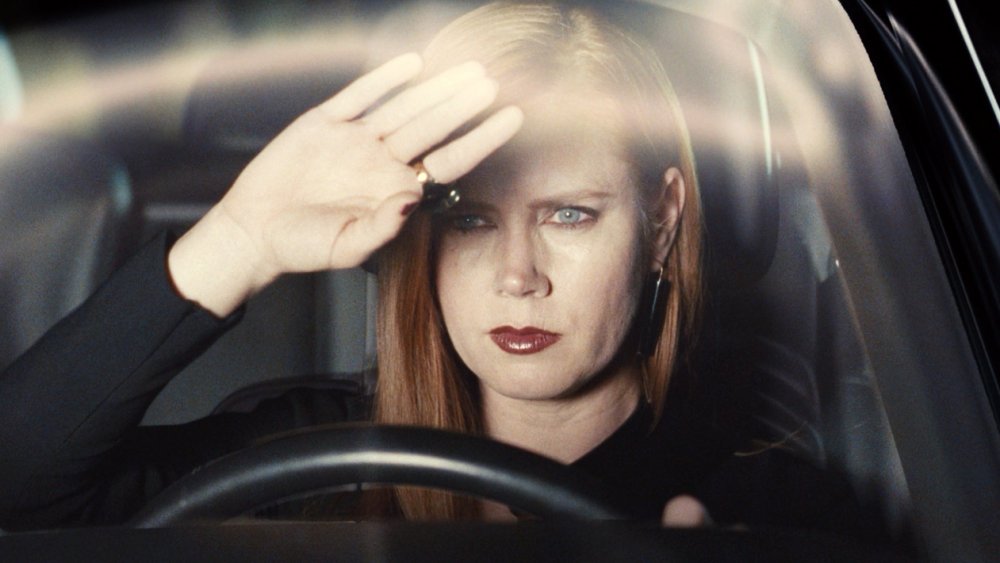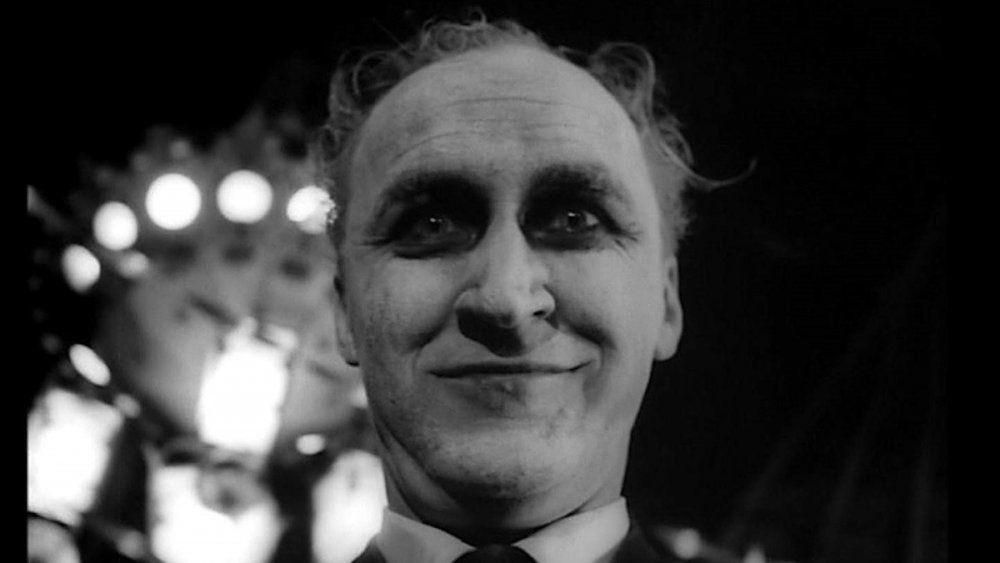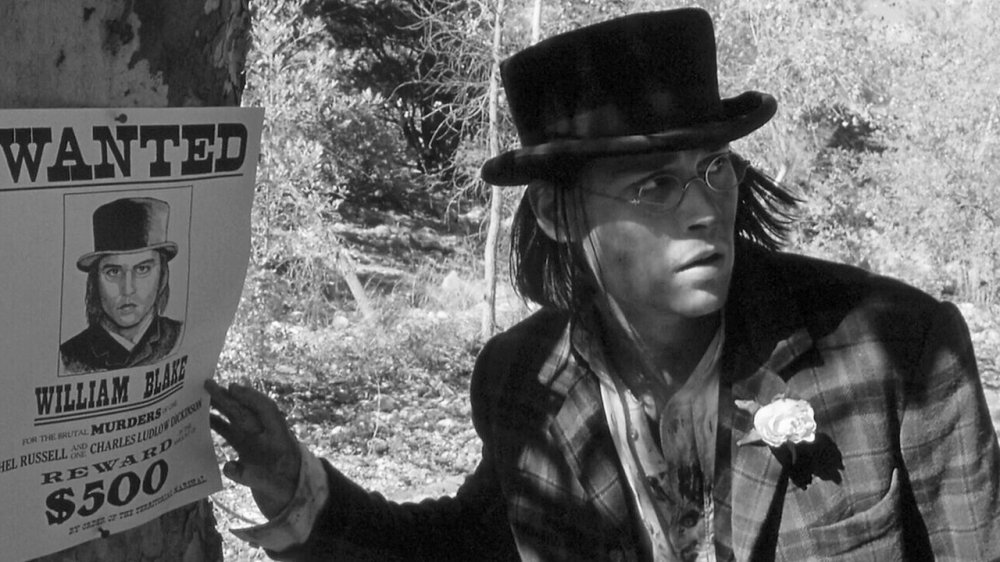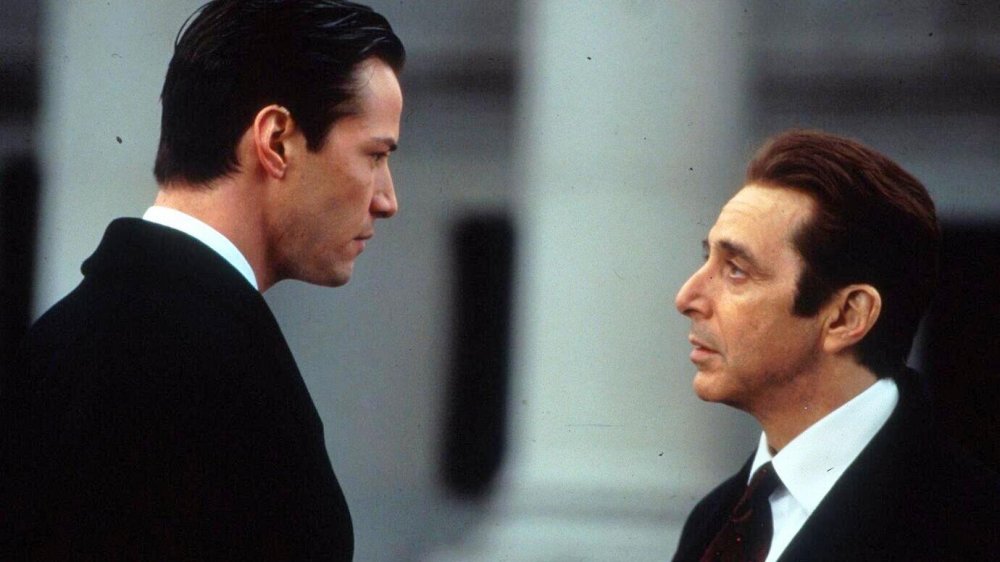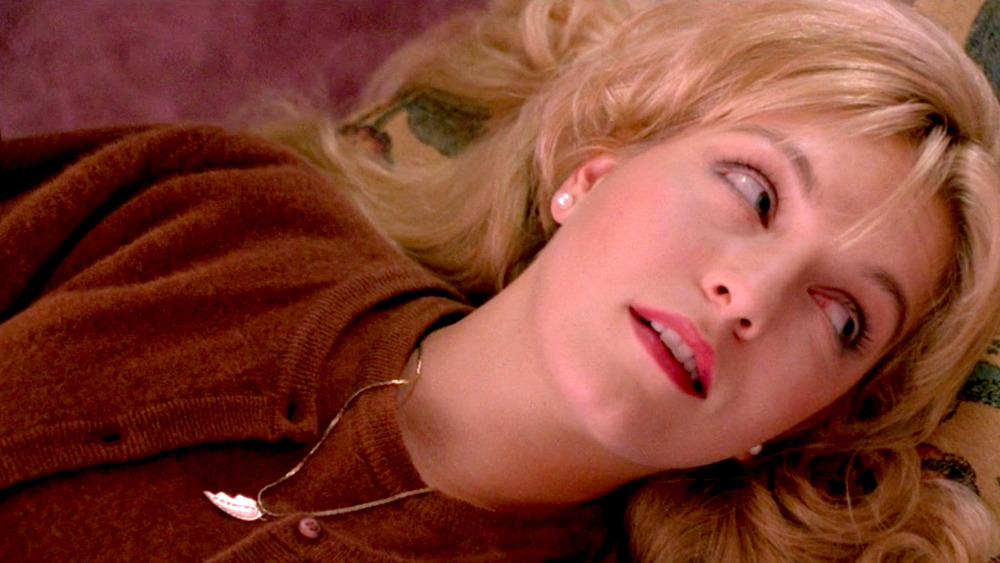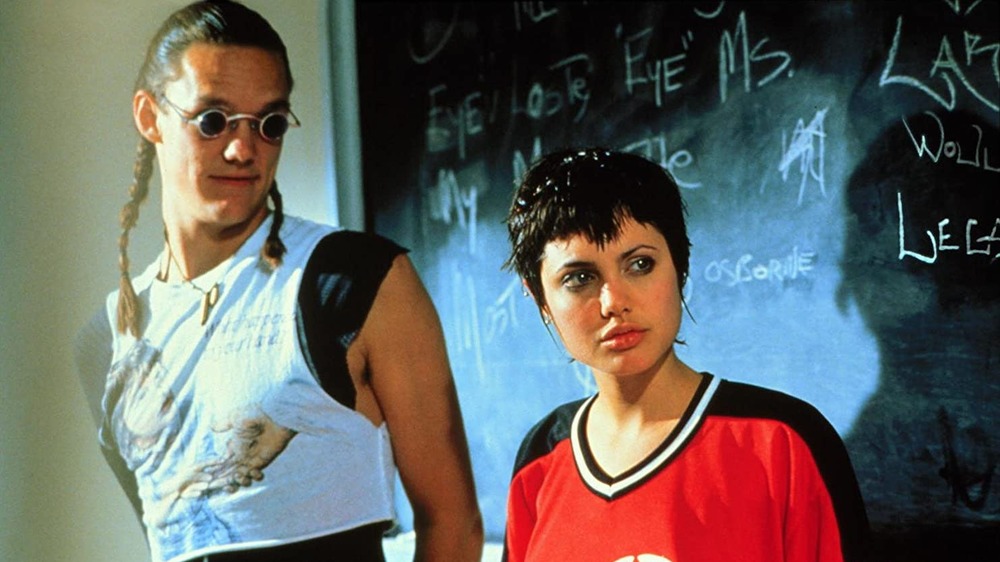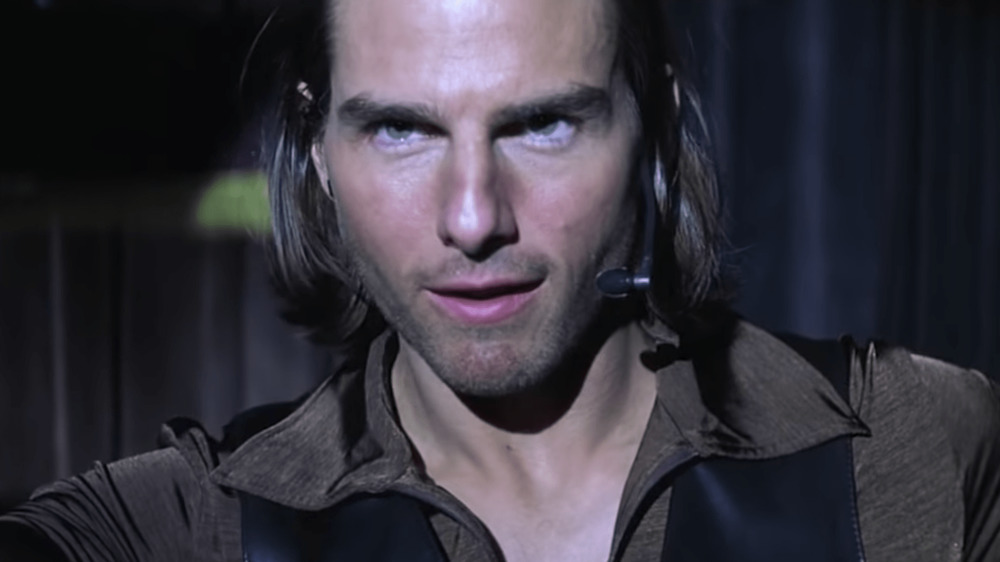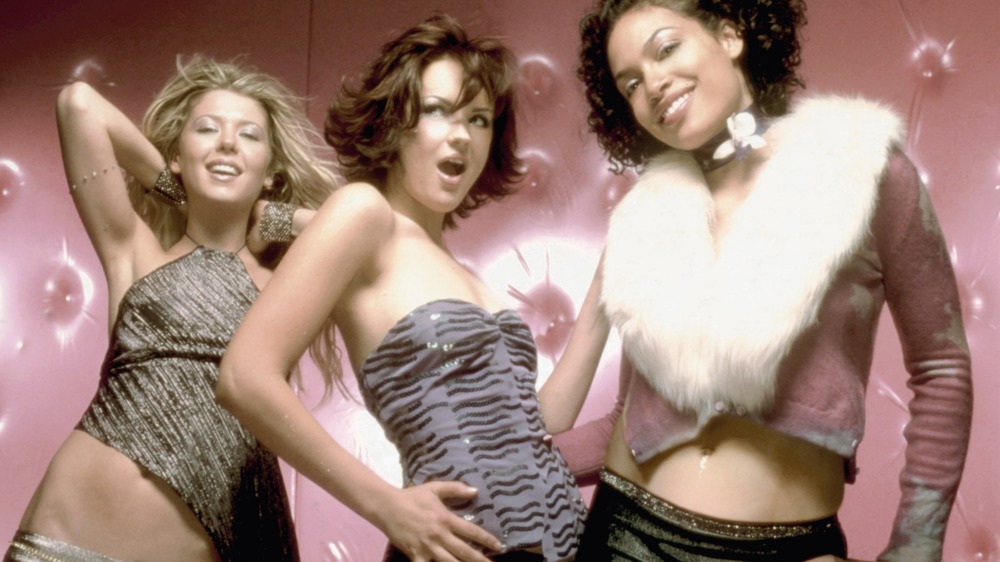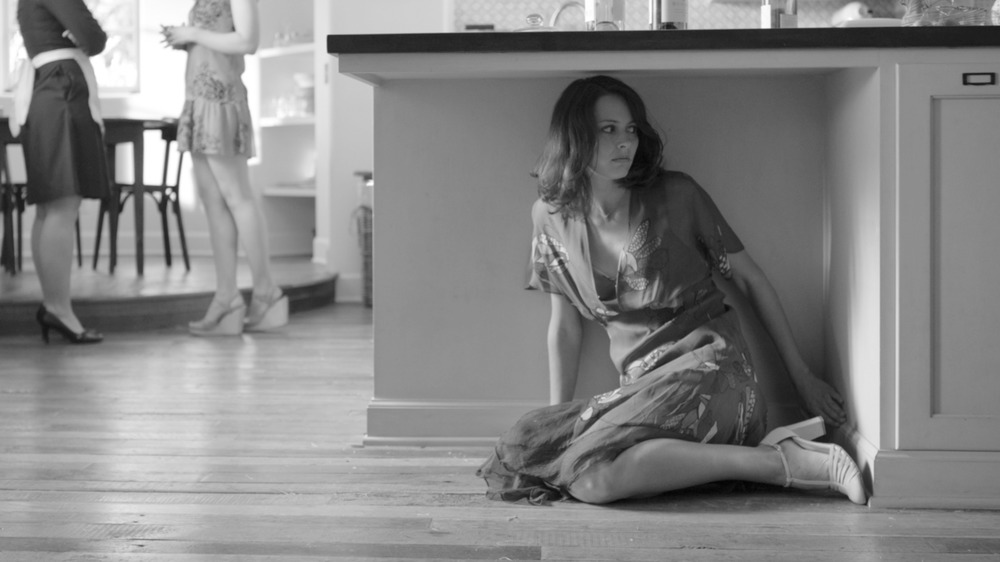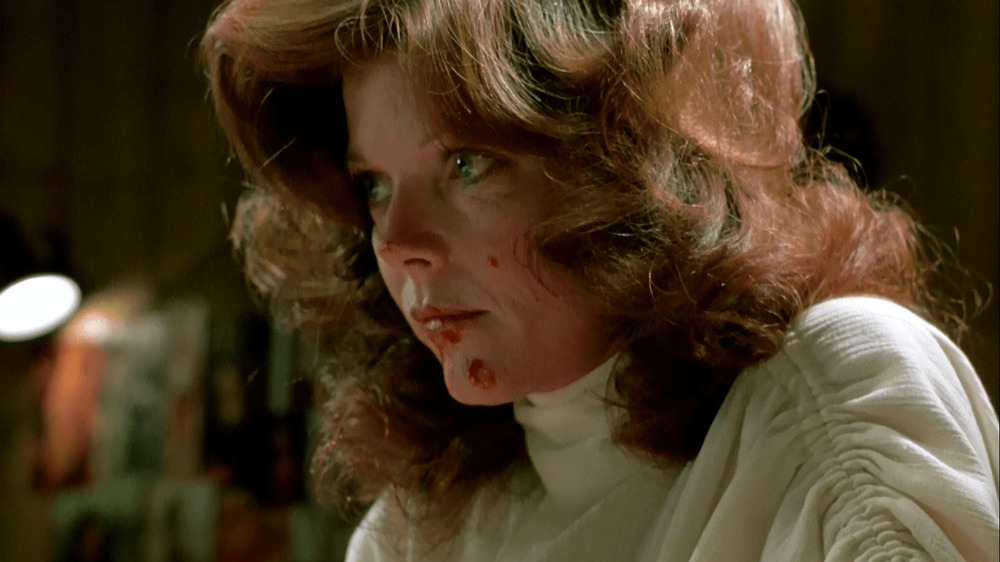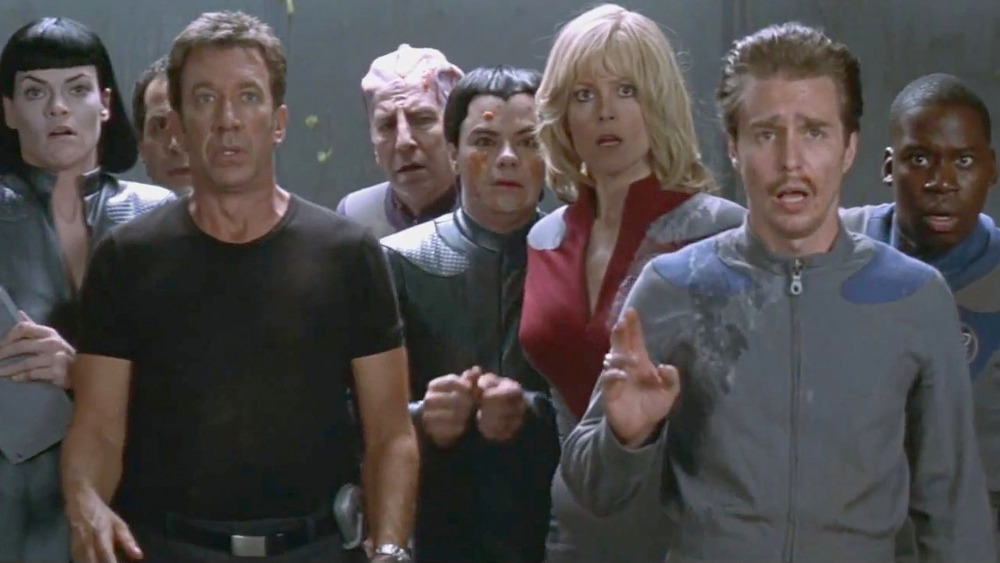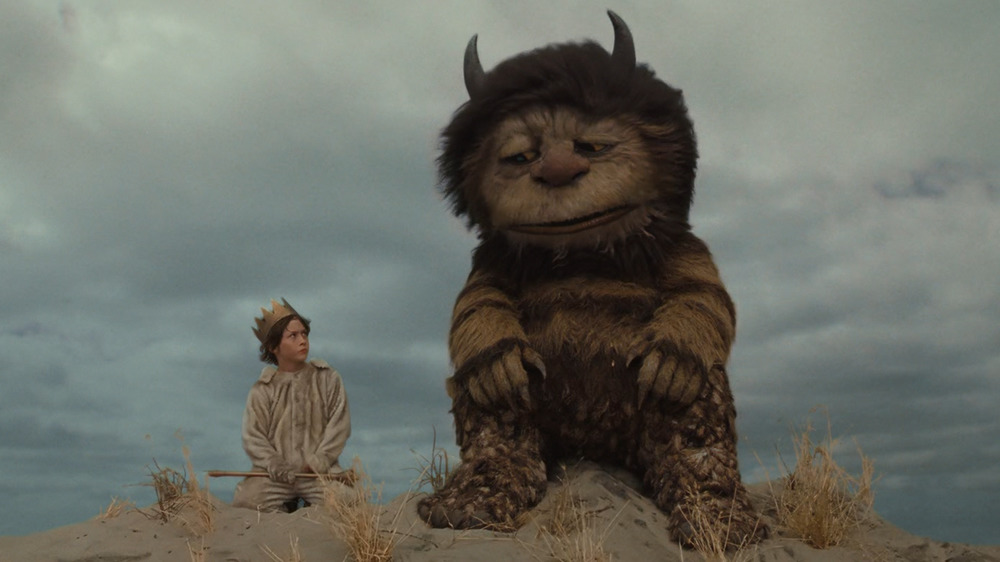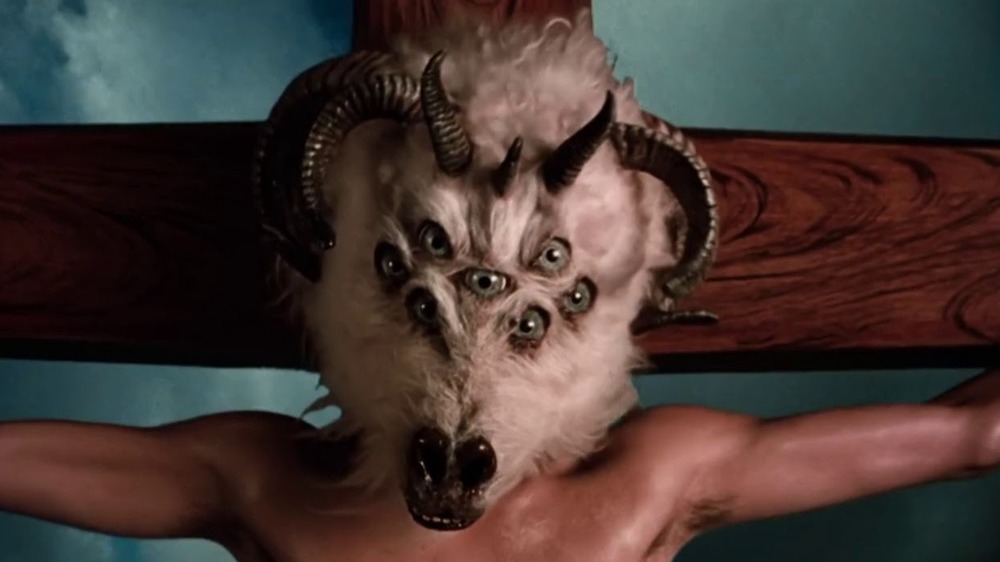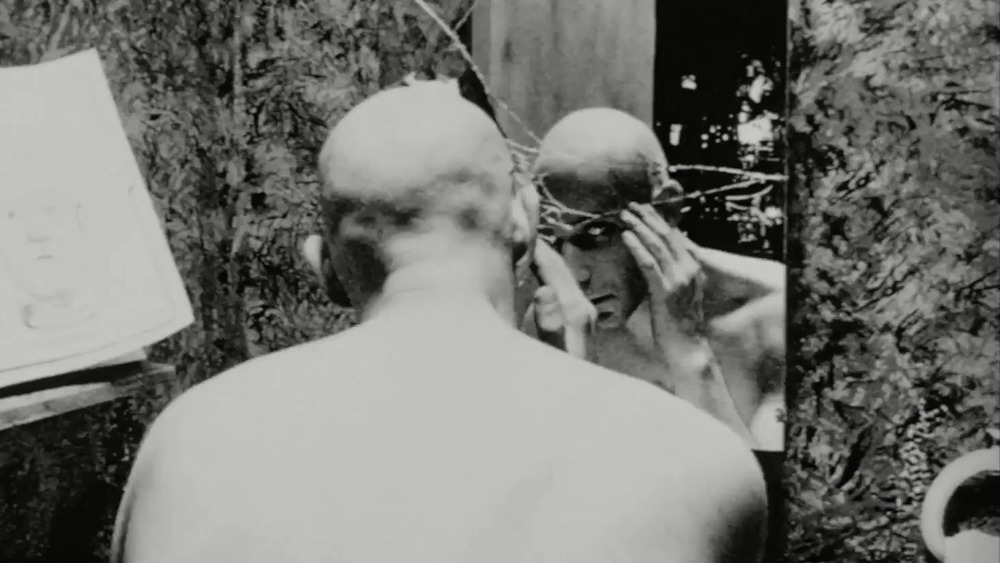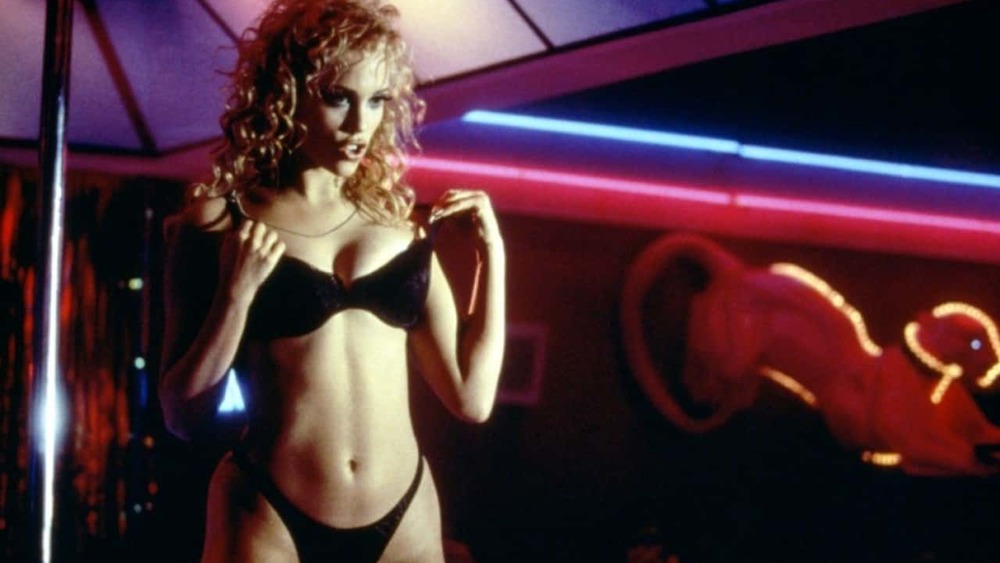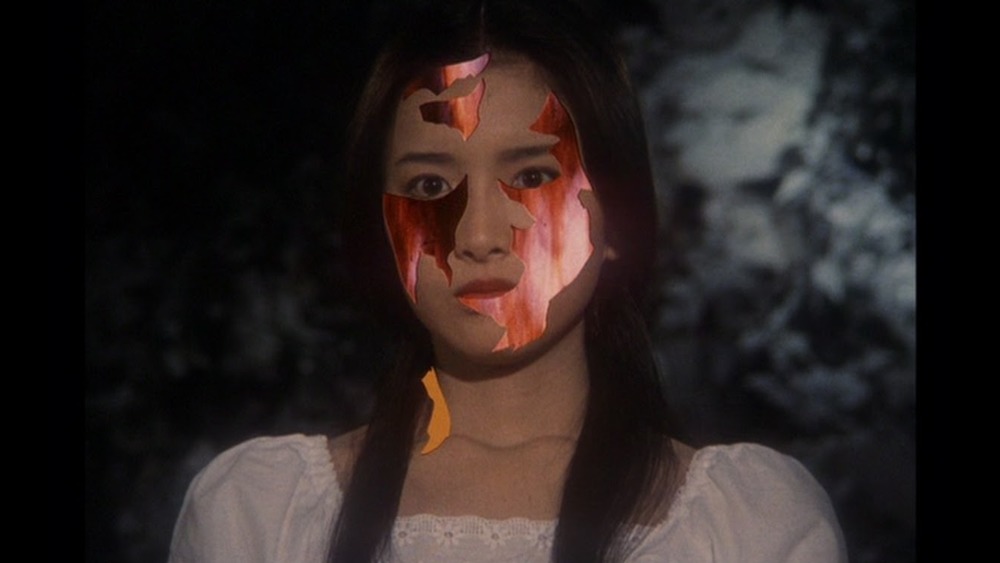Underappreciated Movies On HBO Max
There are plenty of reasons to be psyched about HBO Max: Not only is it the new permanent streaming home for all of the excellent original content HBO has produced over the years, but it's also your new destination for Friends, The Big Bang Theory, and all the TV series fielded by Warner Bros. affiliated networks, which include TBS, TNT, Cartoon Network, the CW, and more. There will also be movies — a ton of them. The total number of feature films available at the launch of HBO Max — which happened on May 27, 2020 — is in the neighborhood of 2,000.
Among those are stone-cold classics like Alien, Die Hard, and Apocalypse Now, and recent hits like Wonder Woman, Joker, and A Star is Born. When HBO Max launched, it brought with it documentaries, animated films, comedies, dramas, thrillers, and more — a ton of great selections from virtually every decade and every genre. We went through the list to find some of the choice selections: Flicks that may not be seen as the biggest draw to a new streaming service but ones that are ripe for rediscovery by viewers on the hunt for quality films that might not have truly gotten their due.
Here are the most underappreciated movies available to stream right now on HBO Max.
Carnival of Souls was a huge influence on some horror greats
1962's Carnival of Souls is a criminally underseen film — the only feature ever helmed by its director, Herk Harvey. The ultra-low budget movie was barely noticed by the general public when it was released, but it was noticed by one particular subset of that public: filmmakers, who were stunned by the simple effectiveness of its cinematography, lighting, and acting.
Today, Carnival of Souls would be classified as a psychological horror film. It follows a woman named Mary (Candace Hilligoss), who moves to Utah after surviving a terrible car accident in which her fellow passengers were killed. When Mary arrives in her new town, she's drawn to a mysterious carnival pavilion near the shore of the Great Salt Lake. Warned away from the place by her new employer, Mary can't help but return — even as a group of eerie, ghoulish figures (the leader of whom is played by Harvey himself) seem to track her every move.
The movie's languid, dreamlike atmosphere was unlike any other feature film of the time, and it will absolutely give you the heebie-jeebies today. Writing about Carnival of Souls in 1989, the legendary Roger Ebert compared it to "a lost episode of The Twilight Zone," and speculated about its likely influence on the likes of George A. Romero and David Lynch. If you're a horror aficionado or a student of film in general, Carnival of Souls is a must-watch.
Dead Man is a singular entry in a very quirky filmography
Few filmmakers are — or have ever been — quite as idiosyncratic as Jim Jarmusch. The director tends to treat the silver screen as a giant canvas for abstract, meandering works that often toy with conventional narrative structure, and his films are often as hilarious as they are challenging. 1995's Dead Man is at once right at home and a strange outlier in Jarmusch's filmography.
Shot entirely in monochromatic black-and-white, Dead Man stars Johnny Depp as William Blake, an accountant traveling to a frontier town in the Old West to begin a new job. Everything goes wrong: He's not welcomed in town, his would-be employer angrily informs him that the position is filled, and during a dalliance with a prostitute, he's shot by the woman's ex-boyfriend. Blake manages to kill the man — who, unfortunately for him, is well-connected in town. Three mercenaries are sent to bring Blake in dead or alive, while Blake encounters an enigmatic Native American man who calls himself "Nobody." He informs Blake that since the bullet is so close to his heart, his days are numbered — he's literally a walking dead man, hence the film's title.
Jarmusch has described Dead Man as a "psychedelic Western," which is as close to an apt description as one is likely to get. The flick's incredible supporting cast includes Gabriel Byrne, Lance Henriksen, John Hurt, Crispin Glover, and the criminally underrated Gary Farmer as Nobody. Dead Man may be a work of quirk, but it's probably Jarmusch's most accessible film — and it's damn good.
The Devil's Advocate is one totally bonkers psychological horror movie
Where to start with The Devil's Advocate? How about here: If you're in the mood to be entertained by an utterly preposterous, slickly made, at times surprisingly disturbing movie that features one of the greatest, most deliriously bonkers Al Pacino monologues ever put to film, this is it.
In The Devil's Advocate, Keanu Reeves (whose blank-slate acting style really works here) stars as Kevin Lomax, a ruthless attorney who has never lost a case and who is recruited by John Milton (Pacino), the head of a prestigious New York law firm. Kevin and his wife Mary Ann (Charlize Theron, acting circles around everybody) move into their sleek new uptown apartment, but things soon start to go wrong. Kevin is defending a client he strongly suspects is guilty, and Mary Ann begins to feel isolated. Oh, and she also starts seeing Kevin's co-workers and their wives turning into demons.
It won't be spoiling too much to say that John Milton is revealed to be the actual Devil (it's kind of right there in the title) and that Kevin is part of a convoluted plan to bring about the coming of the Antichrist. The entire movie is ludicrously entertaining, but Pacino's big speech is the centerpiece; it's as if Tony Montana took a Religious Studies course, engaged in heavy drug use, and delivered the mother of all oral presentations for his final grade. The Devil's Advocate must be seen to be believed.
Twin Peaks: Fire Walk With Me is essential for fans
David Lynch is going to tell the story he wants to tell, market research and test screenings be damned. Some would argue that's the real reason why Twin Peaks: Fire Walk With Me, a prequel to the cult TV sensation, sank like a bag of hammers in the ocean upon its release in 1992. That's also partly why it's aged so well.
Fans aching to know the fate of Agent Dale Cooper (Kyle MacLachlan) following the events of the second and final season of Twin Peaks would have to wait 25 years for Twin Peaks: The Return. Moreover, in a superficial sense, Fire Walk With Me doesn't offer much info about wayward teenager Laura Palmer (Sheryl Lee) that isn't already in the show. So the baked-in audience felt ripped off, while critics and casual moviegoers had no idea what they were watching. The result was an embarrassing $4.1 million box office draw.
But a lot can change in 25 years. Thanks to Twin Peaks: The Return and The Missing Pieces, a 2014 compilation of previously unreleased footage, we know Fire Walk With me adds way more to the larger Twin Peaks saga than was apparent in 1992. For appreciators of Twin Peaks and Lynch, Fire Walk With Me is now an essential watch. Plus, it stands plenty fine on its own as a chunk of sleazy dark surrealism from the '90s, with a bonus appearance from David Bowie.
Hackers' optimism deserves respect
Love sci-fi, but wish it would lighten up a little every once in a while? Allow us to suggest watching Hackers.
At first, it's easy to assume this was Angelina Jolie's first hit movie, especially if one wasn't around for its release. But actually, Hackers was not a success when it came out in 1995. According to PC Magazine, this vehicle for Jolie and Jonny Lee Miller — who, evidently, did not have time to master a convincing American accent before shooting — failed to recoup half its meager production budget during its two-week theatrical run. Way to look stupid in hindsight, 1995.
Granted, Hackers is just as hammy and ridiculous as any other "teen" film of its era. The script doesn't give the impression that the minds behind this cyberpunk adventure understood computers of the time, much less had the foggiest notion of how digital innovation would alter life in the future. But four years before The Matrix made a much stronger statement to the contrary, Hackers showed us a vision of tomorrow where technology gives common people unique control over their own lives, rather than becoming a tool of oppression. The '90s were not as cynical as we've been led to believe, it seems.
Magnolia is a big, weird masterpiece
The year 1999 was an unusually productive one for the movie biz. The millennium's final trip around the sun brought us The Matrix, Fight Club, Girl, Interrupted, Being John Malkovich, and The Sixth Sense, among others. Only that sort of overwhelming cinematic success could overshadow a project on the scale of Magnolia.
A maximalist endeavor even by director Paul Thomas Anderson's heightened standards, Magnolia clocks in at 188 minutes and contains enough interweaving storylines to make counting them difficult. This Jenga tower of comedic drama would crumble instantly were it not for expert pacing and top-tier performances from, among others, Philip Seymour Hoffman, Melora Walters, John C. Reilly, and Tom Cruise. The longtime face of the Mission Impossible franchise, Cruise has been known primarily as a dashing leading man since the 1980s. But as Magnolia's contemptible misogynist and self-help grifter Frank T.J. Mackey, Cruise revels in a sneering, acerbic darkness many of us assume is part of his actual personality. What? You expect us to think a guy with cheek bones and teeth like that isn't secretly the Antichrist?
Magnolia is also required viewing for anyone who isn't already familiar with Aimee Mann, whose affecting and grounded balladeering tethers some of its most indulgent moments to some notion of plausibility. Frank T.J. Mackey lies all the time, but Aimee Mann songs always the tell the truth.
Josie and the Pussycats is a sly satire of commercialism
A decade and a half before Archie and his friends ventured down a grim and gritty TV path on Riverdale, a sunnier version of Josie and the Pussycats came and went from movie theaters in 2001. The Archie-adjacent trio — played by Rachael Leigh Cook, Rosario Dawson, and Tara Reid — exudes anti-corporate irreverence, but doesn't approach the level of fatalism that's more-or-less the norm on Riverdale. As this movie demonstrates, it's entirely possible to be subversive and optimistic simultaneously, but maybe not everyone in Hollywood understands that.
Josie and the Pussycats didn't get terrific reviews at first, but it's undergone a significant critical reevaluation in the subsequent 19 years — and correctly so. The film parodies celebrity culture expertly, especially TRL-friendly, early-'00s pop stars and the multi-million dollar promotional machines behind them. Josie has a wit that's all the sharper for its good nature, and is a much smarter piece of media than anyone gives it credit for, even though it has no interest in being taken seriously whatsoever. But listen, this is the sort of movie that spurs people to make pretty great internet videos telling us that Josie and the Pussycats is the greatest movie of all time. We're not sure if this guy's 100 percent right, but we know for a fact that he's not 100 percent wrong.
Much Ado About Nothing brings Shakespeare into the modern age
In the pre-2015 world, where Avengers: Age of Ultron and Justice League didn't exist yet, current lightning rod for uncomfortable discourse Joss Whedon could seemingly do no wrong. According to legend, the writer-director's version of Shakespeare's Much Ado About Nothing was intended to give him a low-stakes breather project to bang out at his house between Marvel movies. But it feels just as much like an unofficial epilogue to the cluster of TV shows sometimes casually referred to as the Whedonverse: Angel, Dollhouse, Firefly, Buffy The Vampire Slayer, and the MCU-aligned Agents of S.H.I.E.L.D. are all represented by at least one cast member here.
If the final season of Angel remains fresh in your mind's eye, it's initially difficult to accept Alexis Denisof and Amy Acker as Benedick and Beatrice instead of an emotionally broken demon hunter and the chaos god inhabiting his girlfriend's corpse. But Much Ado About Nothing coasts over automatic associations of that sort on the strength of pure charm and whimsy. It's also a Shakespeare adaptation that assumes its audience is smart enough to understand Shakespeare, which is somewhat rare for Hollywood, and deeply refreshing.
The Brood boasts a terrifying reveal
The fact that two of horror and science fiction's most lauded directors both released movies exploring gender and birth in 1979 is either an insane coincidence, or an indicator of some kind of cosmic anomaly that's been covered up by the government and scientific community.
Ridley Scott's Alien is a much bigger movie by almost every conceivable metric, except in its ability to make us squirm. In that respect, The Brood is just about Alien's grotesque equal. The plot involves a cult, a series of psychological experiments gone hideously wrong, and deformed toddler-type creatures on a kill-crazy rampage. David Cronenberg, who partly based the film on a nasty divorce, told Criterion that he considers The Brood "my version of Kramer vs. Kramer, but more realistic." Does anyone know if Cronenberg's ex-wife has seen this movie? We bet she's got an interesting take on it.
The Brood contains potentially the most unsettling reveal in The Fly director's entire filmography, pushing this proverbial bag of dismembered viscera over the top. This is why we implore you: Do not Google this movie, or search for a trailer on YouTube. Half the promotional images spoil the otherwise entirely unpredictable, aforementioned reveal. Most of the internet really wants to ruin The Brood for some reason. Don't let it. Watch The Brood before someone tells you how it ends.
Galaxy Quest is one of the best Star Trek movies ever made
Have you ever asked yourself, "What if a species of besieged humanoid space aliens plucked the cast of Star Trek into space to help fend off a honest-to-gosh, real-as-heck army of hostile cosmic invaders? Wouldn't William Shatner die a hideously violent death almost immediately?" If so, stop asking questions like that, buster! What you're describing is literally the plot of the movie Galaxy Quest, a 1999 cult classic available for viewing on your screen machine at anytime you please. The answers are all right there, and they're fantastic.
Back in Galaxy Quest's day, Deadpool had only recently started telling jokes and Firefly was still a few years away. Fourth-wall breaking humor hadn't yet become common in mainstream entertainment. So despite the presence of Sigourney Weaver, Alan Rickman, and Tim Allen at his height of Home Improvement and Toy Story-related notoriety, more people saw Galaxy Quest during its second and third weeks in theaters than its first — a virtually unheard-of scenario for a major studio film. As a concept, actors pretending to be actors who pretend to know how to save the universe appealed to audiences. But apparently, that was too many levels for the DreamWorks marketing department to comprehend at the time. Thank goodness for word of mouth.
Where The Wild Things Are is for the kid in all of us
While not at lauded as Being John Malkovich or Adaptation, this cinematic adaptation of a book that definitely shouldn't work as a movie belongs in every conversation about director Spike Jonze's greatest achievements.
Is Where The Wild Things Are a children's film? Is it a film about childhood for grown-ups? How about both? The script by novelist Dave Eggers captures the benign madness of our earliest, smallest years with stream of consciousness-style dialogue and raw emotional simplicity. All this allows the story to glide from joyful to devastating, without ever feeling the slightest bit labored. We're not experts on the spectrum of human personalities, but it seems like anyone who's ever formed an attachment to another person can relate to scrappy young protagonist Max (Max Records).
And we haven't even mentioned the singular, unprecedented visual components yet. Towering, friendly monsters voiced by the likes of James Gandolfini and Lauren Ambrose hop across environmental textures ranging from sandy desolation to shadowy forests. In terms of wholly distinctive aesthetics, Where The Wild Things Are ranks right up there with The Dark Crystal, especially since they're both tremendously puppet-oriented films with dubious returns at the box office. The music is also great: Karen O of Yeah Yeah Yeahs fame applies just enough of her signature jagged edges to what's essentially a twee pop soundtrack. Picture Raffi, if he grew up listening to Nirvana and launched his career in Brooklyn circa 2002.
Altered States will freak you out in the best way
Altered States can be dismissed as a pretentious psychedelic thriller likely to go over like gangbusters shortly after midnight in any college dorm room. It can also be celebrated for the exact same reasons. Once we set aside some of the social taboos associated with psychotropic substances, we're left with a tale that follows the fundamentally classic story of Icarus getting too familiar with the sun. Psychopathologist Eddie Jessup (a debuting William Hurt) seeks a higher plane of consciousness, but his sensory deprivation experiments wind up evolving him in the opposite direction from what he originally hoped. What ensues is visually arresting mayhem.
Whatever profundities regarding the nature of human consciousness can be found in Altered States don't hold a candle to its gleefully scatterbrained, trippy hallucination sequences. Don't get us wrong, that's a positive thing. Profundities about human consciousness are frequently boring, but hallucinations generally are not. And hey, did you know Altered States is Drew Barrymore's first movie? Because it totally is, and she's a treat in it.
Pi is a tale of obsession, math, and the meaning of life
Pi, which launched Darren Aronofsky's career in 1998, foreshadows the explorations of obsession the director would later create with much larger budgets. This is a movie about math, the same way The Wrestler is about professional wrestling, Black Swan is about ballet, and Requiem for a Dream is about drugs. It is, however, more accurate to describe all four of the aforementioned movies as tales of characters unraveled by their own single-mindedness and myopia.
During his pathologically intense study of the numerical sciences, math whiz Max Cohen (Sean Gullette) possibly discovers the meaning of life. If so, that makes his downward spiral much more productive than that of any of Aronofsky's other doomed leads. Randy "The Ram" Robinson never body slammed God, after all. Filmmaker Magazine says this movie cost about $60K, which tells us you don't need a massive Hollywood budget to metaphorically grab your audience by the shirt collar, scream existential paranoia directly into their brains, and make them wonder if their calculators could be controlling their thoughts. Pi can get on top of you like that.
Showgirls deserves a second look
The occasionally-panned films of director Paul Verhoeven feel prophetic in retrospect. But when people discuss this, they're mostly referring to Total Recall, RoboCop, and Starship Troopers, and how those '80s and '90s sci-fi blast-'em-ups arguably predicted modern-day trends in domestic and international law enforcement. But if Verhoeven showed us the future of the military with Starship Troopers, did he reveal the future of sex with Showgirls?
Thankfully, no! Right? Well, we don't think so, although it's pretty difficult for us to say for sure. But like Starship Troopers, there's a lot less consensus about the merits of Showgirls, or lack thereof, than was the case upon its release in 1995. Some people think it got a raw deal and deserves a second chance. Maybe they have a point. Elizabeth Berkley's performance takes on a new dimension now that we know her uncanny lack of onstage sensuality wasn't a mistake: It might be basically the point of the movie.
Maybe we should chalk up the critical reassessment of Showgirls to an impulse to overcorrect, or perhaps culture-wide irony poisoning. Even so, Showgirls is a viewing experience you can describe as "so bad it's good!" without being a total liar.
House is as creepy as it is hilarious
What would happen if a mad scientist sewed together random parts of David Lynch, Dario Argento in Suspiria mode, and Hideaki Anno, brought the abomination to life, and commanded it to make a movie? The results would not be as impressive as House, because recently-reanimated human remains don't make good filmmakers. But they would come about as close to approximating the hysterical, mind-squishing, bleeding mayhem of House as anything we care to imagine.
In this 1977 barrel of pure nightmare fuel by Nobuhiko Ôbayashi, a school girl convinces a group of friends — all referred to exclusively by nicknames like "Prof" and "Sweet" that emphasize their seemingly one-dimensional personalities — to join her on a visit to her elderly aunt's middle-of-nowhere home. From there, the situation takes a 90-degree downward turn directly into the abyss.
Compared with the absolute tonal mania of the film, the story isn't really a selling point. House contains piles of silly dialogue and goofball humor, often deployed before or immediately following the wholesale slaughter and mutilation of its teenaged characters. This presence of opposites strengthen House's horror elements, but fair warning, none of those are the scariest part. That designation belongs to a sugary, minimalistic piano melody that plays on a loop for virtually the entire movie.
